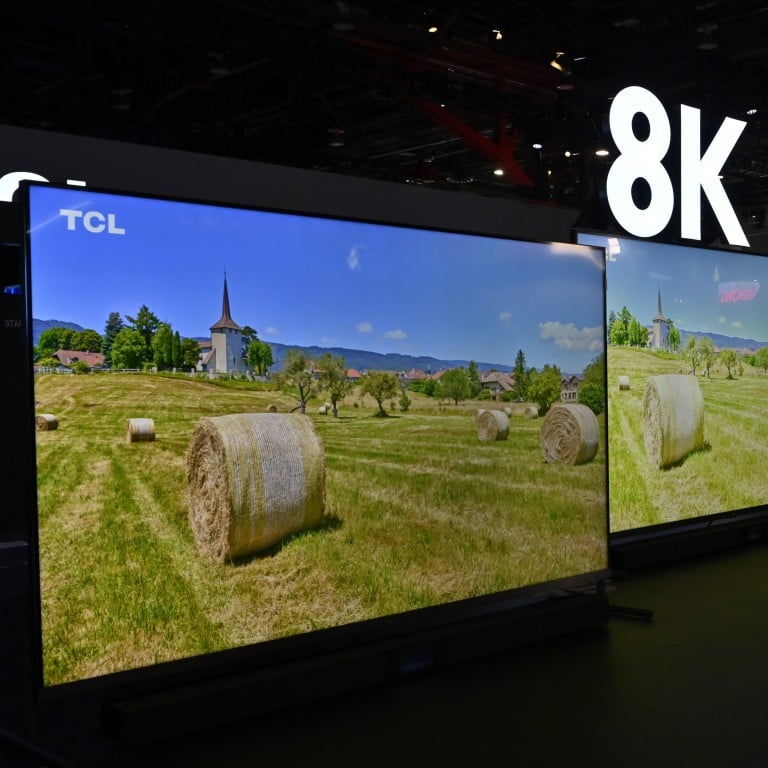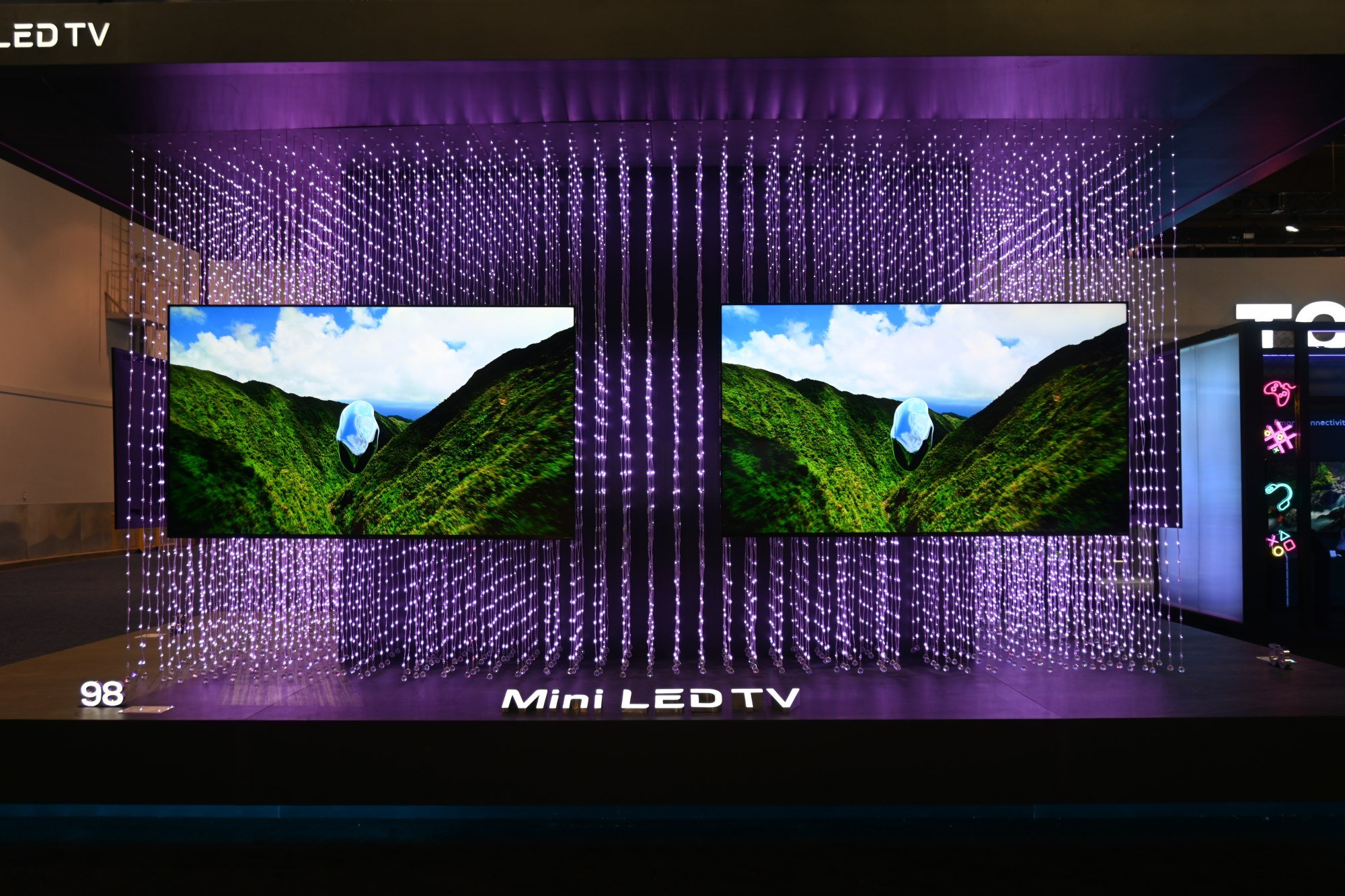
China’s TCL eyes premium TV market with large screens in a bid to revamp brand image
- Driven by the increasing popularity of larger display TVs, revenue for the TV business grew 30 per cent year on year in the first three months of 2024
- Globally, TCL and its Chinese rival Hisense were the second-largest TV makers in the world by shipments, both taking 11 per cent of the market last year
Chinese television set maker TCL is looking to reposition itself as a premium brand, hoping that increased sales of higher-end, larger screen models will help boost its image.
Widely known as a “value for money” TV brand, TCL will move to transform itself into a maker of “affordable premium products”, Dmitri Hu, vice-president of TCL Industries, said at a press briefing in Wuhan, capital of central Hubei province, on Friday during the company’s Global Partners Conference.
Driven by the increasing popularity of TVs with larger displays, revenue for the company’s TV business grew 30 per cent year on year in the first three months of 2024, TCL Industries vice-president Bill Jiang said at the briefing.
TCL is now betting it can extend that momentum this year, as more consumers prefer large-sized screen models, and as mini LED technology allows it to offer larger devices at price points more competitive than OLED TVs of the same size.
TCL and Hisense show off new TVs at CES 2023 in bid to move upmarket
In 2023, premium TV shipments in China grew 39 per cent, while revenue in the same segment grew 49 per cent, driven by Chinese brands’ “aggressive pricing and promotions” for mini LED TVs, according to a report by research firm Counterpoint in February.
Globally, TCL and its Chinese rival Hisense were the second-largest TV makers in the world by shipments, both taking 11 per cent of the market last year, according to Counterpoint. Samsung Electronics maintained its top spot with 16 per cent of worldwide share, the research firm wrote.
“TCL has been one of the leading TV brands for a while, with affordability and good picture quality,” said Ivan Lam, senior analyst at Counterpoint. “However, the brand lags in brand image and cutting-edge tech.”
The company is “very confident” it can successfully reposition itself even though “it takes a little bit of time”, said Hu.
TCL, which sponsored the South China Morning Post’s trip to the conference, also previewed a new 163-inch Micro LED TV called X11H Max. The model, yet to be mass-produced, is currently priced at 800,000 yuan (US$110,455) and has received “more than 10” customer orders, a staff member told the Post.

Hong Kong-listed TCL Electronics said in March that its 2023 revenue was up 10.7 per cent from the previous year, and that its gross profit grew by 12.5 per cent. The firm attributed the positive results to what it calls its “mid-to-high-end + large-screen” strategy.
Going forward, TCL still faces challenges including supply chain cost hikes, and keeping pace with display technology including mini-LED and OLEDs, with South Korean display makers leading in the latter segment, according to Counterpoint’s Lam.
As commodity prices surge along with high inflation and high interest rates, TCL’s Hu said the company was “watching carefully” and is “proactive in hedging” to mitigate supply chain risks.
TCL’s global supply chain has become more localised to “produce locally and sell locally”, according to Hu. That is why the company has been expanding its manufacturing capability in regions including Latin America, Central America and Europe, and countries such as Turkey and Vietnam, he said.

